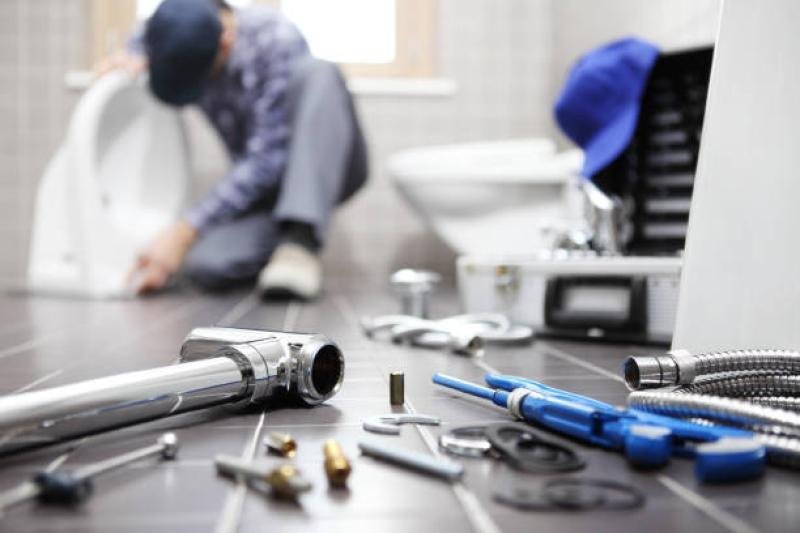The Importance of Regular Plumbing Maintenance systems play a vital role in maintaining the comfort and quality of daily life. They are the backbone of residential, commercial, and industrial infrastructure, ensuring a continuous supply of clean water and the safe disposal of wastewater and liquid waste.
Without an efficient plumbing system, it becomes impossible to meet basic needs such as drinking, cooking, bathing, and cleaning. Additionally, plumbing protects public health by providing a clean and healthy environment, preventing the spread of diseases caused by sanitation issues or water leaks.
Whether in homes, commercial buildings, or factories, plumbing services offer solutions for designing, installing, and maintaining systems to ensure their efficiency and sustainability. Hence, having a professional plumber and reliable plumbing services is not a luxury but a necessity for maintaining a comfortable and safe lifestyle.
Types of Plumbing Services : Residential, Commercial, and Industrial
Plumbing services cater to a wide range of needs depending on the type of property and the purpose of the service. They can be categorized into three main types:
1. Residential Plumbing Services
Description: Services tailored for homes and apartments to meet daily needs.
Examples:
- Installing and maintaining faucets, sinks, and toilets.
- Repairing water leaks and replacing damaged pipes.
- Installing and maintaining water heaters.
- Cleaning drains and fixing clogs.
- Inspecting home plumbing systems to ensure efficiency.
2. Commercial Plumbing Services
Description: Services provided for commercial properties like offices, restaurants, and hotels.
Examples:
- Designing and installing plumbing systems to meet high-usage demands.
- Maintaining large-scale drainage systems.
- Installing hot water systems for industrial kitchens and restrooms.
- Repairing pumps and irrigation systems for green spaces.
- Upgrading and replacing plumbing systems in older buildings.
3. Industrial Plumbing Services
Description: Services tailored for factories and industrial facilities with complex needs.
Examples:
- Installing and maintaining piping systems for transporting chemicals and liquids.
- Designing advanced drainage systems for large facilities.
- Installing filters and water treatment systems used in industrial processes.
- Repairing and maintaining industrial pumps and tanks.
- Providing customized plumbing solutions based on the nature of industrial production.
Why Categorize Plumbing Services by Type?
- This classification allows for customized solutions for each sector based on its specific requirements.
- It helps customers select qualified and specialized plumbers for their needs.
- It ensures the efficiency and safety of the system under various conditions and uses.
Essential Tools and Equipment Used in Plumbing
Plumbing requires a variety of specialized tools and equipment to ensure efficient and accurate work. These tools vary depending on the job, whether it’s a simple repair or a complex installation. Below are some of the essential plumbing tools and equipment:
Wrenches
- Types:
- Pipe Wrench: For tightening or loosening pipes.
- Adjustable Wrench: For adjusting nuts and bolts in plumbing systems.
- Torque Wrench: For measuring and adjusting torque during pipe or valve installations.
Pipe Cutter
- Description: Cuts metal or plastic pipes accurately without damaging other components.
- Application: Essential for cutting pipes to the required length during installations.
Drill
- Description: Used to drill holes in walls or surfaces for pipe or fixture installations.
- Application: Crucial for installing plumbing systems in new buildings or when adding new features.
Pressure Gauge
- Description: Measures water pressure in pipes and plumbing systems.
- Application: Ensures systems operate at appropriate pressure levels without leaks.
Plumber’s Tape
- Description: A specialized tape used to seal pipe joints and threads, preventing leaks.
- Application: Ensures tight pipe connections, especially in installations requiring additional sealing.
Screwdriver
- Description: Used for tightening and loosening screws in various plumbing components.
- Application: Installing fixtures such as faucets and valves.
Plunger
- Description: A manual tool for unclogging sinks and toilets.
- Application: Removes minor clogs without dismantling pipes.
Impact Driver
- Description: A pneumatic tool for tightening and loosening screws.
- Application: Used in commercial and industrial plumbing where more power is required.
Welding Tools
- Description: Tools for welding metal pipes together using heat for permanent connections.
- Application: Essential for installing metal pipes in industrial or large-scale projects.
Pipe Bender
- Description: Bends plastic or metal pipes easily without breaking them.
- Application: Used for installations requiring curved pipes or adjustments to variable dimensions.
Pipe Cleaners
- Description: Equipment for cleaning inside pipes to remove dirt and debris.
- Application: Ensures smooth water flow without blockages.
Check Valves and Valves
- Description: Valves for controlling water flow in pipes.
- Application: Ensures no leaks or blockages and provides effective maintenance systems.
Heat Gun
- Description: Used to heat plastic materials or welds, facilitating pipe installations.
- Application: Primarily used in plastic plumbing for pipe assembly.
The Importance of Regular Plumbing Maintenance
Regular plumbing maintenance is crucial to ensure system efficiency and sustainability, helping to avoid significant issues and high costs. Here are the primary benefits of regular plumbing maintenance:
- Prevents Sudden Failures:
Early detection of minor issues like leaks or clogs prevents them from escalating into major problems, avoiding costly emergency repairs. - Improves System Efficiency:
Maintenance ensures all components of the plumbing system function efficiently, reducing water and energy consumption. For example, cleaning pipes and filters enhances water flow and prevents unwanted stoppages. - Extends the Lifespan of Pipes and Equipment:
Pipes and equipment such as faucets and valves wear out over time. Regular maintenance prevents corrosion and rapid deterioration, prolonging the life of these components and reducing the need for replacements. - Maintains Water Quality:
Leaks or pipe blockages can lead to water contamination. Regular inspection and cleaning of pipes preserve water purity and ensure its safe and clean delivery. - Reduces Repair Costs:
Addressing minor issues before they grow into major problems lowers repair costs. Major failures often require the complete replacement of pipes or system components, which is far more expensive than routine maintenance. - Enhances Performance of Plumbing Devices:
Whether water heaters or sewage pumps, regular maintenance ensures these devices operate at their best, improving overall comfort in homes or facilities. - Prevents Water Damage:
Undetected leaks can cause significant damage to buildings, such as ruined walls, ceilings, and furniture. Regular maintenance detects early leaks and addresses them before causing extensive damage. - Ensures Health and Safety:
Water leaks or blocked sewage systems can lead to health issues due to germ buildup or mold. Routine maintenance prevents such problems and keeps the environment healthy and safe. - Promotes Environmental Sustainability:
Maintaining plumbing efficiency minimizes water wastage, reducing the strain on natural water resources and contributing to environmental preservation. - Compliance with Legal Standards and Warranties:
Many insurance companies and manufacturers require regular maintenance to maintain warranties. Local laws may also mandate periodic inspections to ensure systems meet health and environmental standards.
Regular plumbing maintenance is not just a preventive measure but a long-term investment to maintain comfort, efficiency, and safety. It helps avoid costly repairs, improves water and energy usage, and protects both the environment and individuals’ health.

